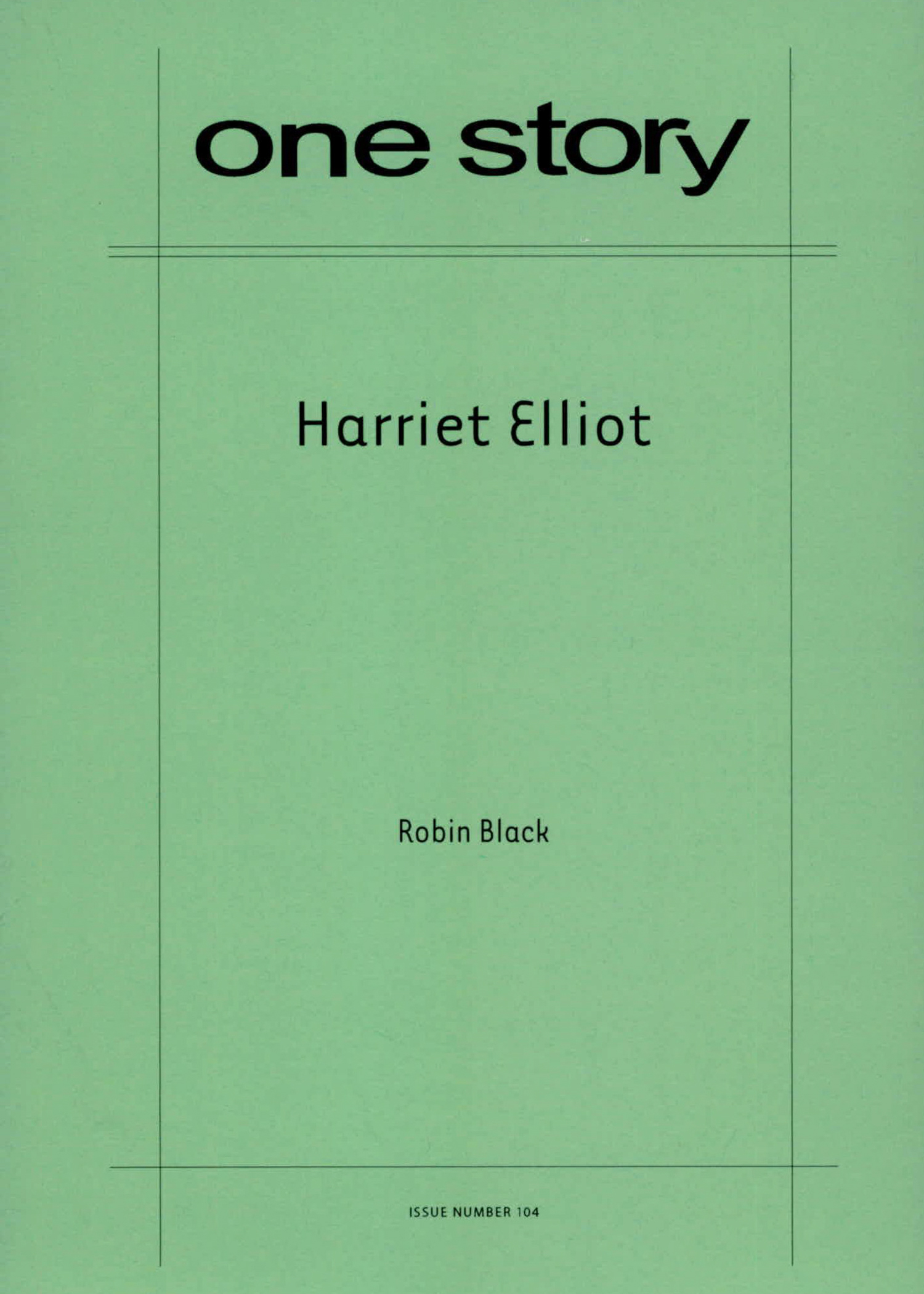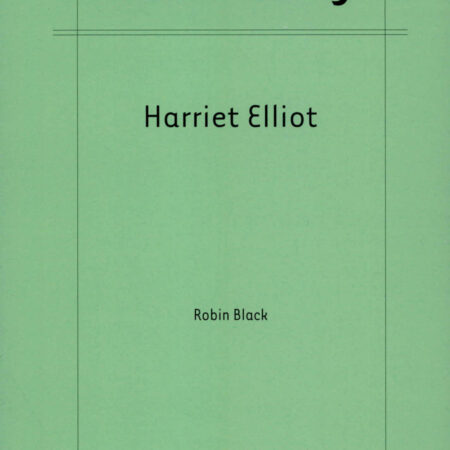
Harriet Elliot
$2.50
22 in stock
Excerpt
She was the new girl in our fifth grade. Harriet Elliot. And when she told us that, she told it to us whole, the necessary pause between first and last name, that hard, repeated stop at the end of each, adding to the strangely adult air she carried with her, and signaling her separateness from us.
We were ten and eleven years old. Our parents, all of them friends, our fathers all professors, had started this school, an experiment in learning. We knew nothing of desks. Nothing of mimeographed sheets of paper with empty lines or boxes to be filled. We roamed the large classroom and Expressed Ourselves. We lounged, with books we chose, in bean bag chairs, and on the shag rug, which smelled like the dog our teacher brought with her each day; and also like us. We played recorders and African drums. We learned our times tables with dried lima beans. We wore jeans or we wore blue and white striped Osh-Kosh overalls. Sometimes we wore Levi’s cords, though they always faded quickly at the knees, the ridges dissolving into translucent fabric, soft and grubby, like a loose second skin.
Robin Black
Robin Black’s stories and personal essays have appeared in numerous publications including Alaska Quarterly Review, Colorado Review, Bellevue Literary Review, The Southern Review and the anthology The Best Creative Nonfiction (Norton 2007). She has been noticed for Special Mention by the Pushcart Prizes three times, and in 2005 won First Prize in the Pirate’s Alley Faulkner/Wisdom Writing Competition, short story category. A recipient of fellowships from the Leeway Foundation and the MacDowell Colony, Robin is a graduate of the Warren Wilson MFA Program for Writers. Her first collection of stories is forthcoming from Random House.
Q&A by Hannah Tinti
- HT: Where did the idea for this story come from?
- RB: There was a girl in my fourth grade class who had been kidnapped as a baby, in France. And she was very matter of fact about it, which I found to be weird and also somehow upsetting. I thought she was inadequately obsessed with all the terrible things that might have happened to her. And I suppose I also felt cheated, because she had given me just this one fact when what I wanted was the whole story—the creepier and more frightening the better. So, in a sense, I’ve reinvented her to be the way I thought she should be when I was ten. The actual writing started when the name Harriet Elliot appeared in my thoughts one day, and I became a whole lot more than adequately obsessed with it. I had this theory that having a name like that might cause a child to develop an unusually clear sense of herself at an early age—which seems ludicrous to me now, but there’s this whole category of thoughts like that that sound like gibberish in real life, yet can sometimes make sense in fiction.
- HT: What was the most challenging aspect of writing this story?
- RB: Getting Harriet right. I wanted it to seem as though she had stepped out of a different kind of story altogether, something more like a fairy tale, but not as though she didn’t belong in this one. And I wanted her to be a complete contrast to the narrator in many ways, but not feel like a device, invented for that purpose. In a story that uses a lot of pretty familiar psychology as an engine, I thought she should be placed just outside the reach of those explanations. It was difficult making her so peculiar—the stranger who comes to town and changes everything—while still making her seem plausibly like a child.
- HT: Was the progressive school that is the setting for Harriet’s alienation inspired by a real school?
- RB: It was inspired by a lot of real schools. I think it’s just part of parenting to hope, sometimes believe, that after millennia of other people bungling the job, you have figured out the secret to raising happy children. Back in the early seventies, when I was a kid, one of my teachers had us keep journals, but they were called “Me Books.” We were supposed to write in them—every day!—about something that made us special. The theory was that we would love ourselves more and more as a result, but of course it backfired, for me anyway, when I ran out before a week was up and was doomed to spending some minutes every morning confronted with the fact that I couldn’t come up with anything special about myself. I think that’s a pretty good example of how these attempts to create ideal circumstances for one’s children can trip up on themselves. It was also good prep for a lifetime of panicking over blank pages.
- HT: What lesson or lessons do you think the narrator will take away from her experience with Harriet?
- RB: I don’t really want her to take away a lesson as much as I want her to be transformed. To me, the story is about expanding one’s sense of possibility. It’s about harnessing faith to imagination, and abandoning the kind of dogged reliance on the purely rational that carries a danger of hopelessness—as in the mother’s endless, cogent arguments in favor of Nothingness. So the narrator has to experience change more than understand it, or she hasn’t really changed.
- HT: Writing for main characters who are children can be a tricky task. Were there specific challenges for you as far as tone or anything else as you crafted this story around them? Were there certain archetypes you wanted to avoid?
- RB: The hardest part for me was their dialogue, trying to convey the cadences of kid-speech, without having them sound like they stepped off a cheesy TV show. Then, on top of that, Harriet had to sound like a child who sounds a bit like an adult. I found in early drafts that some of her sentences were too long. I had tried to create that adult quality through complicated syntax, but I realized that for her to get away with saying so many things kids don’t usually say, I was better off doing the exact opposite and keeping her syntax very simple, very classically child like. Then there were things I chose to summarize, in part because I had a sense that it was harder to sustain long passages of a child’s speech, that it was going to start sounding stagey sooner than might happen with adult dialogue. At least it was harder for me. For all of that, I know I could go back and find places that I still think aren’t right.
- HT: One highly successful element of the telling of this story is the sparse, blunt language you employ. Is this characteristic of your work or an effect you adopted for the specific concerns of this story?
- RB: Thank you for saying that. Stylistically, my work can be very different from piece to piece—though somehow the weaknesses remain pretty consistent. For this story, I tried to keep the prose unadorned and straightforward because I wanted the impression of an adult remembering, without too much impression of the adult. This isn’t one of those first person stories that’s partly about who the narrator has become between the events and her telling it. For this story to work, it really has to end with that final blink. So a lot of the style was determined by my trying to keep the older narrator pretty much transparent, almost all the time.
- HT: Where did you get the idea for the wishing ritual?
- RB: Years ago, I read that when Greta Garbo received her first love letter she rubbed it all over her body, then ate it. I thought that was spectacular! I loved the passion of her relationship to the writing on the page, loved the idea that the paper and ink, the physical elements, were imbued with the magic of their meaning. So when I was thinking about rituals that would signal the importance of the written words themselves, I thought of that.
- HT: Do you think Harriet Elliott will one day get revenge on the Italian bandits who captured her?
- RB: I think the good money is on her. Especially now that she can Google them.
- HT: How long did it take you to complete this story?
- RB: It’s been well over three years. I don’t think I entirely understood the story for a lot of that, even once I had submitted it, but somehow Hannah did. She set me back to work, and had me push really hard, opening up a lot of scenes, adding about a third to its original length. Three years isn’t too bad. I’m still tinkering with things I wrote fifteen years ago.
- HT: What is the best bit of advice about writing you have ever received?
- RB: Stop tinkering with things you wrote fifteen years ago. Seriously, not to let rejection paralyze me. And never to try to imitate someone else’s writing. I’ve received a lot of brilliant craft advice too, but none of it helps if you quit or try to be someone you’re not.
- HT: What are you working on now?
- RB: I’m doing edits on my collection with Random House, and working on a series of essays that I hope will be a book someday. Very soon, I’m going to reread the novel I finished drafting last year and try to figure out what the next step with that should be.
